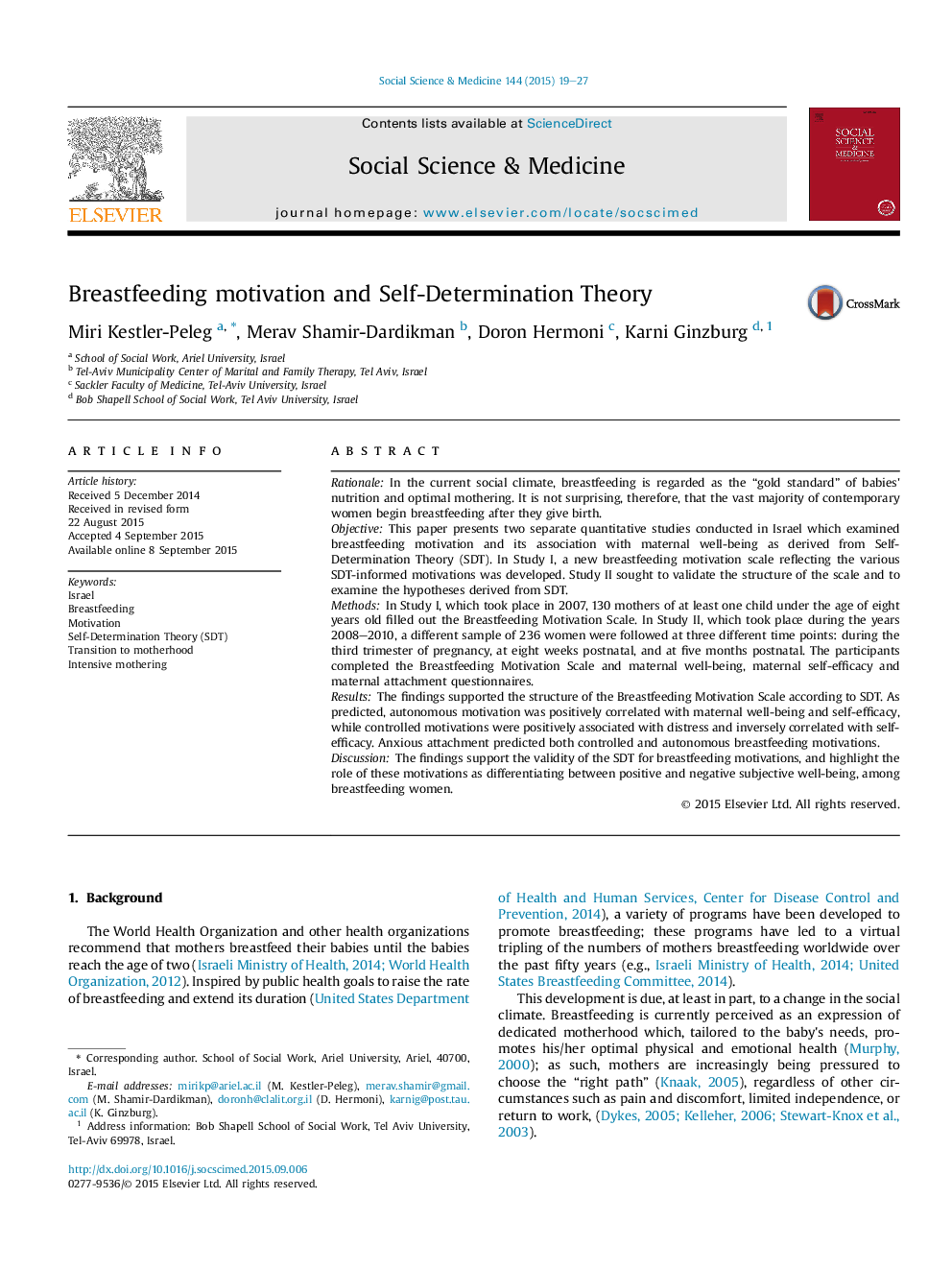| کد مقاله | کد نشریه | سال انتشار | مقاله انگلیسی | نسخه تمام متن |
|---|---|---|---|---|
| 952229 | 1476025 | 2015 | 9 صفحه PDF | دانلود رایگان |
• This study examines breastfeeding motivations and maternal wellbeing as derived from Self Determination Theory.
• Findings indicate the salutogenic effects of autonomous breastfeeding motivations.
• Findings illustrate the heavy price paid by women who breastfeed out of extrinsic motivations.
RationaleIn the current social climate, breastfeeding is regarded as the “gold standard” of babies' nutrition and optimal mothering. It is not surprising, therefore, that the vast majority of contemporary women begin breastfeeding after they give birth.ObjectiveThis paper presents two separate quantitative studies conducted in Israel which examined breastfeeding motivation and its association with maternal well-being as derived from Self-Determination Theory (SDT). In Study I, a new breastfeeding motivation scale reflecting the various SDT-informed motivations was developed. Study II sought to validate the structure of the scale and to examine the hypotheses derived from SDT.MethodsIn Study I, which took place in 2007, 130 mothers of at least one child under the age of eight years old filled out the Breastfeeding Motivation Scale. In Study II, which took place during the years 2008–2010, a different sample of 236 women were followed at three different time points: during the third trimester of pregnancy, at eight weeks postnatal, and at five months postnatal. The participants completed the Breastfeeding Motivation Scale and maternal well-being, maternal self-efficacy and maternal attachment questionnaires.ResultsThe findings supported the structure of the Breastfeeding Motivation Scale according to SDT. As predicted, autonomous motivation was positively correlated with maternal well-being and self-efficacy, while controlled motivations were positively associated with distress and inversely correlated with self-efficacy. Anxious attachment predicted both controlled and autonomous breastfeeding motivations.DiscussionThe findings support the validity of the SDT for breastfeeding motivations, and highlight the role of these motivations as differentiating between positive and negative subjective well-being, among breastfeeding women.
Journal: Social Science & Medicine - Volume 144, November 2015, Pages 19–27
